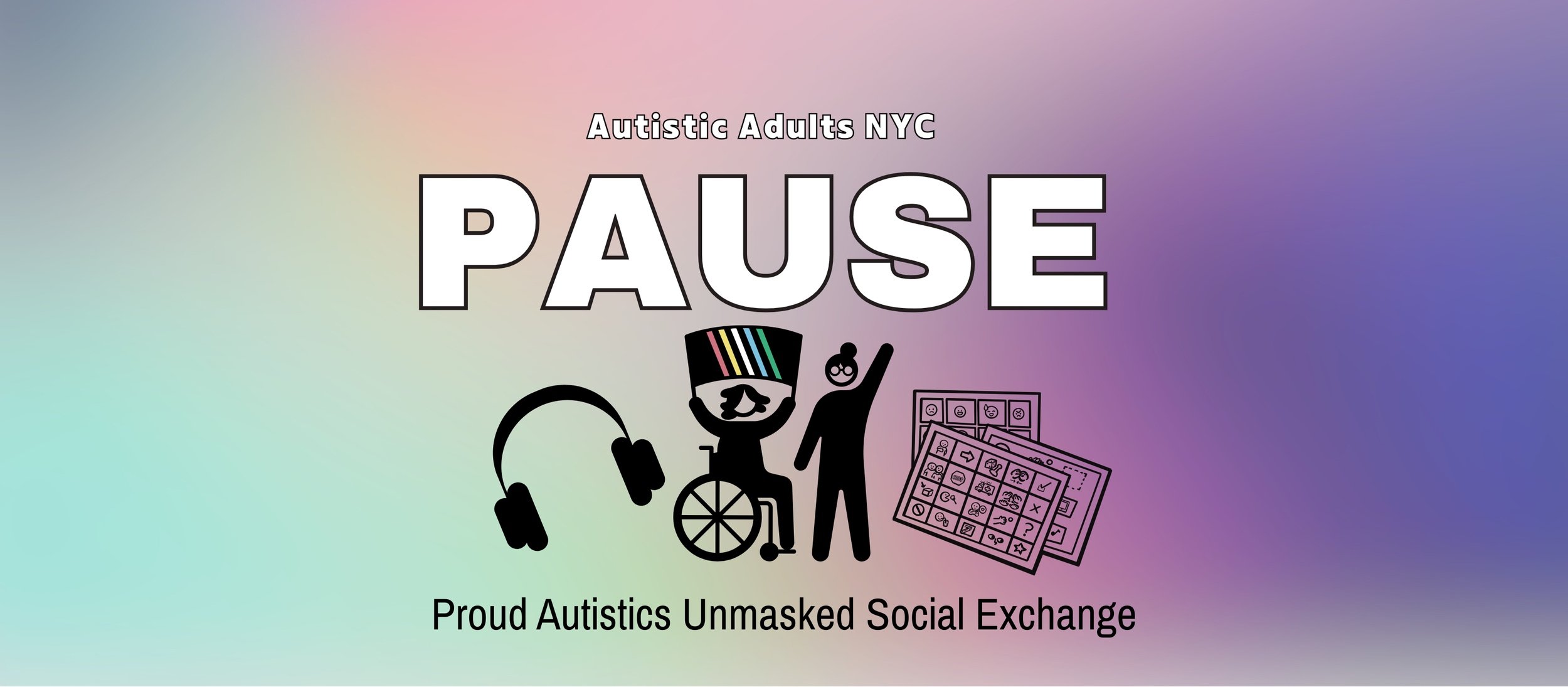
What is PAUSE?
PAUSE is a place to make friends and feel part of a community, without needing to talk.
These events are for Autistic adults who are non-speaking or have intellectual disabilities.
-
PAUSE is a space for friendship and community that doesn’t revolve around speech!
These events are designed to be especially welcoming to Autistic adults with intellectual disabilities, those who are non- or minimally speaking, or those who have other disabilities that make typical social settings challenging.
Created by Autistic adults, the event series is non-clinical and relaxed. Our goals are connection, supporting self-advocacy, and offering a regular welcoming space!
Unlike our general events, these gatherings are open to all - Members are welcome to bring a family member or support person to accompany them!
Next PAUSE Event
Click the title below to see the event page and sign up!
Past PAUSE Events
Questions
-
Nope! Whatever is most comfortable for you - whether that’s AAC, gestures, typing, or interacting silently side by side others!
Each event will have a focus or activity, but it’s very freeform and members are welcome to follow along in a way they’re comfortable.
-
PAUSE is a social program and is not designed to replace any clinical/therapeutic programs. Any adults with specific needs should have an aide present to assist them.
-
Of course! Our events are open to all Autistics. But keep in mind our general events are structured differently than PAUSE events. Most members are our general events communicate by speaking, and some events may be in louder/less accessible environments. Additionally, we try to keep our general events a safe space for Autistic adults, as many prefer to be in an Autistic-only environment. Non-Autistic support workers/family are still welcome at our general events, but advanced notice is required.
If you have any questions about one of our upcoming general events, please reach out! - info@autisticadultsnyc.org.
-
Our goal is to maintain a comfortable space for participants and make sure the program revolves around non-verbal interaction, so no one feels excluded.
You’re welcome to attend if you think PAUSE might be a good fit for you, but please just keep that in mind!
-
Low-support needs: People who might need some support, but in general can lead independent lives.
High-support needs: People who require day-to-day care and support.
Non-speaking: A person who is unable to communicate by speaking, but may use other methods to communicate (communication boards, sign language, gestures, etc).
Minimally-speaking: A person who might speak some, or unreliably speak, and may use other methods to aid with communication.
Intellectually disabled (ID): A person with an intellectual disability. They may have difficulties with learning, communication, and independent living.
-
Non-Verbal = Without Language/Words. Many “Non-verbal” Autistics communicate through communication boards, typing, sign language and finger spelling, which all include words and language! Many non-speaking advocates state that the term “non-speaking” accurately reflects their experience, and discourages the stigma that “non-verbal” individuals are “non-thinking.”
Functioning labels can be seen as cold/offensive to some Autistic people, as they refer to their “economic value” or how they might “function” in society. Using “high-functioning” to refer to someone might dismiss their struggles, and “low-functioning” dismisses their capabilities and value as a person. Referring to someone’s support needs emphasizes what the Autistic individuals needs are, rather than how they “function” in society.
If there are any other questions, concerns, or specific accessibility needs/accommodations, please reach out: info@autisticadultsnyc.org


